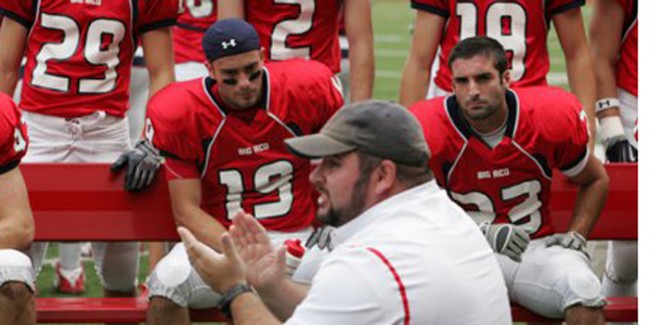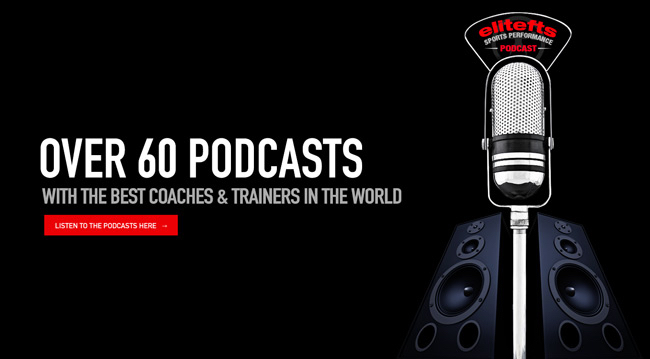
Getting Naked: Lencioni's Fable from a Coach's Perspective
To say I am heavily influenced by Patrick Lencioni is an understatement. Reading Lencioni has always been a positive influence on me. Relating Lencioni's business models have been easily transferred to coaching.
The Complete Guide to Staff Meetings
When my wife and were moving last summer, I went to half-price books to sell back a carload full of what was mostly college textbooks. Between my wife and I, we have 5 degrees and over 14 years of college, so that's a lot of books; even after most were sold back when we were in school.
I bought one of Lencioni's books I haven't read before called Getting Naked. It was about sales and in my former position, it made sense to check it out. It had the same basic set-up with all of Lencioni's books. He starts with a fable and then provides a model.
3 Fears of "Naked" Service
And by naked, Lencioni means vulnerable which is where true trust is built and is the first step in organizational health. Here is the basic model, Lencioni provides.
For the sake of this post, I will just touch on the 3 major categories and apply them to coaching. The subcategories provide more depth, but I hope you can relate to these general concepts.
Fear of Losing the Business
As soon as I stopped "selling our program" to the athletes and just demanded they work as hard as they could toward being a better athlete, things changed for me as a coach.
I spent a lot of time trying to explain to athletes why everything we were doing, from a physical preparation standpoint, would help them on the field or court. It was one thing to explain this to sport coaches (and even that got drastically reduced), but at some point, the athletes will need to trust that you have their best interest in mind.
Constantly explaining why every single thing we did in the weight room would help them as athletes would chip away at productivity, efficiently, results, and ultimately, my credibility. They harder I made them work, the more loyal they became. I wanted to make sure they had no doubt they were working harder than any other opponents on their schedule.
To have an athlete leave a training session not feeling that are getting better as an athlete through performance testing, personal bests, or just a basic feeling of accomplishment through shared suffering is a disservice to them. Not saying we should judge training on how crappy the athletes feel afterward, but that have to feel the training session was "worth the work."
Fear of Being Embarrassed
What if every training session in your weight room was filmed and on YouTube? Would you do anything different? Would you coach differently? Would your athletes respond differently? Most programs are judged by other coaches by one day of performance testing or a random day of SpringBall "toughness training". This snapshot is by no means a fair representation, but coaches are judged by it nonetheless.
You cannot be afraid of having some high squats, wide catches, and bouncy bench presses in your program. These will happen, but it is your job to have everyone in your program identify them as such. Do your best to reduce them through instruction and promoting proper form over weight used. That is the difference between strength sports and field or court sports. Weight training is an end to a means. These will happen, but it is your job to have everyone in your program identify them as such.
One of the best things you can do as a coach (which Todd Hamer has talked about) is bringing another coach to observe your program to watch you coach. Not your buddy, but a coach in the field. You would be amazed at how much progress you can make as a program and as a person. When I was at Denison, I brought coaches like Mark Cannella, John Patrick, Joe Hashey, Travis Self, Bob Davis, Tom Palumbo, and many others to observe a training session. This is the best conversation you can have afterward:
Coach: Why are you doing it that way?
Me:
A.) I have no idea
B.) Well....(followed by some BS answer that I don't even believe myself)
C.) Because of this ______
All 3 answers require improvement as a coach. What is more important than what you do is how you do it. What is more important than how you do it is why you do it.
Fear of Feeling Inferior
Here is the best way to establish your intellectual superiority at a conference? Sit in the back and openly disagree with everything the presenter says. The best way to establish your intellectual superiority on the internet? Openly criticize everything you see on from everyone's posts. Especially is you are anonymous as there are no repercussions.
When I came up in the profession, the only way you can get any info from any of the top coaches was to go see them and seek our their knowledge... in person. Does it make you feel inferior to ask a colleague about how they do things? If you do, your ability to grow as a coach is extremely limited. You just let your ego effect your ability to train athletes. Don't worry about how someone feels about your knowledge base, just try to increase it.
There are no quantifiable awards for the best coach on the internet. There are only the athletes you're training and the family, teammates, and coaches that your mentorship effects. At the end of the day, you have to figure out why you became a coach in the first place? If the reason was to impress other coaches in the field than you have a lot of personal reflection that needs to take place. Concern yourself with the athletes, coaches, parents, and administrators that are paying your bills. As my friend Harry Selkow has said:










